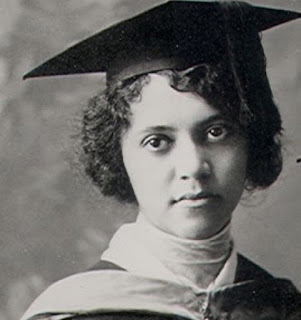I was recently on the campus of the University of Hawai'i Manoa flower foraging with my youngest baby girl, age 2. In the not-too-far distance, we heard someone speaking into a microphone. Their words were intermittently followed by clapping which came from a small crowd gathered around.
The person speaking wasn't visible to me, and the words being spoken were unclear either due to distance or a muffled microphone. I'm not too sure.
"Clapping!" Baby Girl exclaimed from time to time as we gathered petals of various colors and varieties from where they'd fallen from the trees up above. We had a fun time in the 15-20 minutes we were in that area. Once we'd collected all flowers relevant to our mission, we trekked back across the open lawn past the nearby crowd to head to our next adventure.
*******
Two days after our morning outing, I received an email--which I do regularly--informing me of the latest news concerning the University. The first words in the email read "Ball honored."
Here are a few highlights about Ms. Alice Ball:
In 1915 she graduated from UH Manoa with a master's degree in chemistry.
She was the first woman chemistry professor at the university.
At the age of 23, she discovered an effective treatment for leprosy.
Prior to her work regarding leprosy, she was studying the properties of kava.
The leprosy treatment was derived from the oil of the chaulmoogra tree (the dedication ceremony took place under one such tree planted in her honor some years ago).
The then president of the Univerity (Hawai'i College at that time), Author Dean, continued her work, published her research, and mass-produced the treatment without giving her credit.
Author Dean called the treatment "The Dean Method."
Harry Hollmann--a doctor who had encouraged Ms. Ball to research chaulmoogra oil--gave her proper credit for the work she'd done. He published a paper regarding her work and renamed her technique "The Ball Method."
Now. When I read this information, my mouth literally dropped open upon learning about the tactics of Author Dean, the college president who stole her work!
I'm not naive about these things. I'm aware that historically black/African-American people have done many groundbreaking things for which they have not received credit. It's nothing new.
For some reason, though, I was a little bit stunned to learn this had happened to Alice Ball. It was as if I felt like I'd betrayed her legacy by knowing about her but not knowing enough to know she was a scientist who made a profound discovery then--in her untimely death--had her work stolen by the president of her school, no less!
(A president for whom a building was named.)
****
History has shown us that people can operate in ways that are contrary to righteousness. It's just the reality of the situation now and then.
The contributions Alice Ball made were profound. As far back as 1860, Hawai'i residents diagnosed with leprosy were arrested and exiled to a small peninsula attached to the Hawaiian island of Moloka'i at the Kalaupapa Settlement. People were taken away from their families and quarantined due to the nature of leprosy as a contagious disease.
Although I recall learning about this several years ago, re-visiting it in the context of the recent/current global pandemic brought me to a better understanding of how Alice Ball's work toward treating leprosy changed the way that people lived and coped with the disease. Although previous efforts had been made to use chaulmoogra to treat it, the application was impractical and essentially ineffective due to inconsistent results. Alice Ball's method made the results stemming from the use of the oil more consistent. Her research and work brought her to conclusions on how the oil could be injected and absorbed by the body.
Because of her research, discovery, and formulation, Alice Ball came up with a useful treatment that would allow those affected by leprosy to remain in their homes with their family instead of being banished to the settlement on Moloka'i, which came to be seen by those forced to live there as hell in large part due to isolation.
The injectable chaulmoogra oil treatment significantly improved outcomes for disease sufferers and kept families together.
Imagine having an illness and being told that your condition requires that you be sent to a secluded location with no access to your family all while you're battling the deadly disease. This mostly affected native Hawaiians. Others of more affluence were allowed to see private physicians or go to hospitals. Because of this, the disease came to be called "the separating sickness." A treatment such as the one Alice Ball developed allowed patients to stay home with their families while simultaneously improving their health conditions.
Her previous work which analyzed the properties of the kava plant was also relevant in the leprosy treatment since patients drank kava to assist with the stress they dealt with.
*****
The mysterious event that was happening the day we went plant foraging on the campus of the university was definitely one that I would have attended had I known what it was. Despite my absence, it feels divine that we were even in the vicinity. My knowledge has increased in so many ways as a result of my awareness of the ceremony.
In the course of writing this, I learned a 19 minute short was produced about Alice Ball's work.
Here's the link to the super short trailer: https://vimeo.com/378570246
And here's the video that came with the email I received.




No comments:
Post a Comment